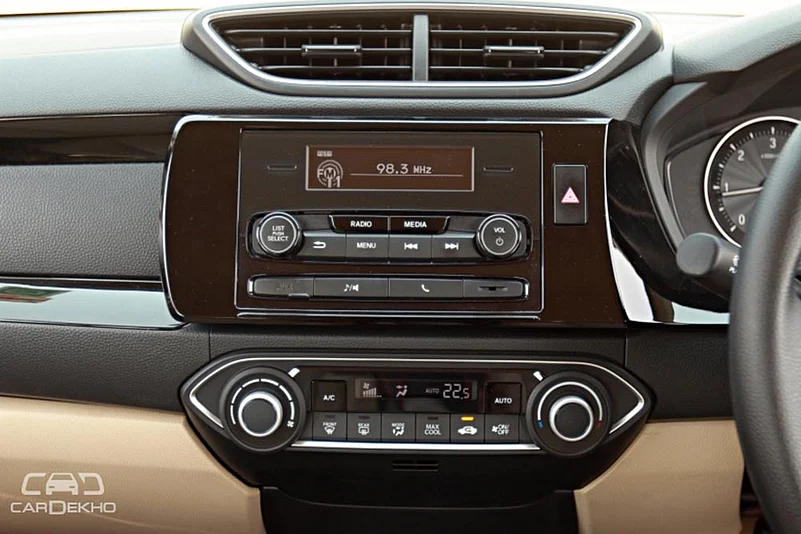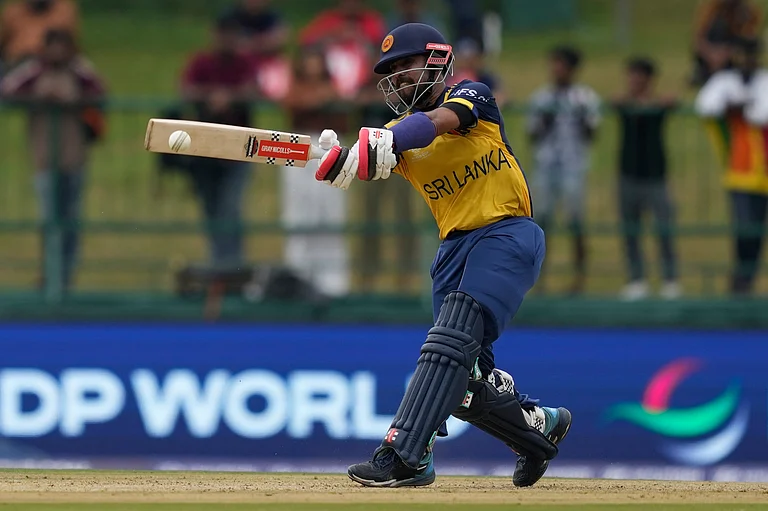The 2018 Honda Amaze, which is priced between Rs 5.60 lakh and Rs 9 lakh (ex-showroom pan-India), not only takes on sub-4m sedans and SUVs but also premium hatchbacks such as the Maruti Suzuki Baleno, Honda Jazz and the Hyundai Elite i20. Here, we pit the Amaze against the best-selling premium hatchback in the country, the Baleno, to find out which of these similarly priced cars are worth your hard earned money.
Before diving into the details, here are the basic differences between the Baleno and Amaze
| Honda Amaze | Maruti Baleno |
| A compact sedan: The Amaze is a sub-4m three-box sedan, which means you get a separate boot to store your luggage. It’s based on a new platform that, Honda says, was developed keeping a sedan in mind. However, there will be a hatchback based on the Amaze coming soon. | A premium hatchback: While the Amaze is a sub-4m three box sedan, the Baleno is a hatchback. However, they have one thing in common - both utilise the sub-4m length to the fullest. The Baleno is slightly larger than the Swift and it feels more spacious on the inside too. |
| More Luggage Space: The Amaze’s boot has a capacity of 420 litres. The rear bench is ideal for two adults, though headroom is a bit cramped. | More space for occupants: The Baleno is wider, taller and has a bigger wheelbase than the Amaze! That should make it better at seating five passengers. It’s boot space is rated at 339 litres. |
| Automatic option: The Amaze gets automatic transmission (CVT) option with both petrol and diesel engines. It is the first car in India to offer a CVT with a diesel engine. In petrol guise, the Amaze CVT gets paddle shifters as well. | Petrol automatic only: Where the Amaze gets the option of CVT automatic with both of its engines, the Baleno gets it with the petrol engine only. The diesel Baleno can only be had with a 5-speed manual transmission. |
| Comfortable at both slow and high speeds: The Amaze is a comfortable car to be in, be it at city speeds or out on the highway. It also holds its line well at high speeds and doesn’t bounce much when it encounters sudden bumps on the road. However, there’s a slight body roll when you decide to change lanes, especially at triple digit speeds. | Firm yet comfortable ride: The Baleno’s suspension setup is on the firmer side. That said, it absorbs potholes and bad surfaces quite well. The steering is also well-balanced. So, it is not tiring in the city and feels confident out on the highway. |
| Competition: Maruti Dzire, Hyundai Xcent, Ford Aspire, Tata Tigor, Volkswagen Ameo | Competition: Hyundai Elite i20, Honda Jazz, and Volkswagen Polo |
Dimensions

Engine

Both the cars are powered by a similar capacity petrol engine, but its the Amaze which is more powerful (by 6PS). However, when it comes to torque and claimed fuel economy, the Baleno takes the lead. Talking about transmission, both the cars can be had with a 5-speed MT or a CVT automatic.

Unlike their petrol versions, the diesel-powered Amaze dominates the 1.3-litre DDiS-powered Baleno in every parameter. It not only has the bigger engine, but it is more powerful, torquey and frugal, albeit by a very small margin. On the transmission front, the Baleno is offered with a 5-speed MT, while the Amaze can be had either with a 5-speed MT or a CVT automatic.
Features
Honda Amaze E vs Maruti Baleno Sigma

Common Features: Both the cars get basic safety features such as dual front airbags, ABS with EBD, seat belt pretensioners with force limiter and Isofix child seat anchors as standard. Other common features include front power windows and manual AC.
What Honda Amaze gets over the Baleno: Rear parking sensors, day/night inside rearview mirror (IRVM) and rear power windows.
What Maruti Baleno gets over the Amaze: Tilt-adjustable steering, adjustable front seat headrests and central locking
Takeaway: Both the Amaze E and Baleno Sigma get a lot of features in common. The Amaze E is a little on the expensive side when you factor in the kind of additional equipment it gets over the Baleno. At the same time, however, the fact that it has a bigger boot can’t be discounted either.
While the additional features of the Amaze, like the parking sensors and rear power windows, can be installed on the Baleno as well, you won’t be able to retrofit a tilt-adjustable steering or even front seat headrests in an Amaze easily. Taking that into account, it’s the Baleno that turns out to be a better pick when it comes to the base variants of both cars.
Honda Amaze S vs Maruti Baleno Zeta


Common Features (over previous variants): Rear parking sensors, central locking with keyless entry, electrically adjustable and foldable ORVMs, turn indicators on ORVMs, tilt-adjustable steering, height-adjustable front seat headrest, height-adjustable driver seat, all four power windows, basic music system with Bluetooth and steering-mounted audio controls.
What Amaze Gets Over Baleno: None
What Baleno Gets Over Amaze: Alloy wheels, front fog lamps, automatic headlamps, auto-dimming IRVM, automatic climate control, telescopic adjustable steering, 60:40 split rear seat and push button start.
Takeaway: Is there anything to mention here? The Baleno Zeta is, by far, the better equipped car here. And the premium it attracts over the Amaze for these features is more than justified in our opinion.
Honda Amaze S CVT vs Maruti Baleno Zeta CVT


The feature list of the automatic variant remains identical to their manual counterparts.
Takeaway: The Baleno is our pick here as well. While both cars get a CVT transmission, its the Baleno which is better equipped. And the premium of Rs 30,000 for these features is justified in our books.
Honda Amaze V vs Maruti Baleno Alpha


Common Features (over the previous variants): Alloy wheels, front fog lamps, automatic climate control and push button start/stop, LED DRLs (Amaze gets positioning lamps that can be turned off)
What Amaze has over the Baleno: The Amaze does not get anything over what the Baleno, except for paddle shifters in the CVT variant
What Baleno has over the Amaze: Automatic projector headlamps, 7-inch touchscreen infotainment system with Apple CarPlay and Android Auto, reverse parking camera, telescopic adjustable steering and 60:40 split rear seats.
Takeaway: The Baleno remains our choice here as well. The premium it attracts for the extra features it offers is totally justified. You can have majority of these features in the Honda Amaze as well, but you will have to go for the top-spec Amaze VX, which is priced at a premium of Rs 48,000 over the Amaze V and about Rs 20,000 over the Baleno Alpha.
Honda Amaze V CVT vs Maruti Baleno Alpha CVT

Takeaway: Choosing the right car is a little tricky here since the price difference between the two increases by Rs 40,000. You do get more features in the Baleno and there’s no denying that you can justify the premium of Rs 40,000 for these. But the Amaze is also well equipped in comparison. So if you are willing to live without automatic projector headlamps, telescopic steering and rear split seats, we would suggest you go for the Amaze V CVT. A touchscreen infotainment system or a parking camera be retrofitted, if required.

Why Buy Amaze:
- Larger Boot: The Amaze has a 420-litre boot, which is the biggest in its segment. In comparison, the Baleno’s boot offers 339 litres of space.
- Powerful diesel engine: The Amaze’s 1.5-litre diesel engine paired with manual transmission is more powerful than the Baleno’s 1.3-litre unit. It is more frugal as well, although by a very small margin.
- Diesel automatic: The diesel-powered Amaze can also be had with an automatic transmission, that too a CVT.

Why Buy Baleno:
- Features: The Baleno is more equipped than the Honda Amaze in all comparable variants except for the base variant, where it is more affordable as well
- Fuel efficient petrol engine: The petrol-powered Baleno is more fuel efficient than the Amaze
- After-sales Support: Being a Maruti, the Baleno boasts of the widest sales and service network in the country.
Prices
Petrol

Diesel

Source: Cardekho.com


























